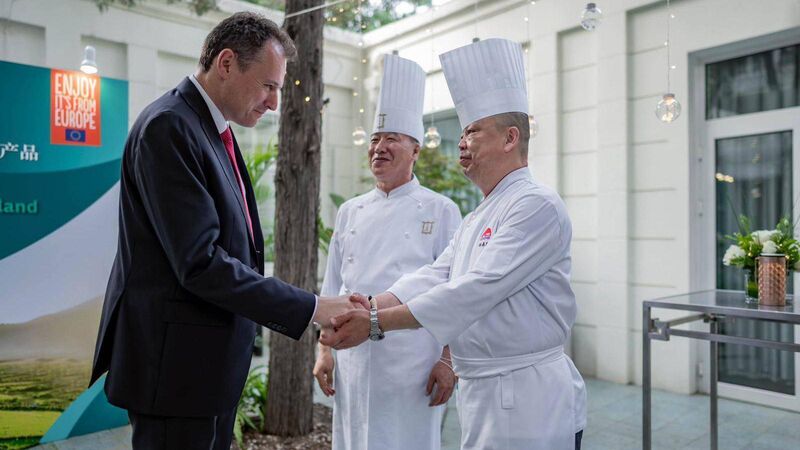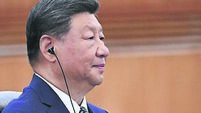Dairy is big ticket item in growing Ireland-China agri-food trade

Minister for Agriculture, Charlie McConalogue, meets Chinese chefs during a Bord Bia's Chef Masters event in Beijing in May 2023.
China Agri-Food Exports Rachel J Martin It might be famously known as “the silk road”, but these days trade to China is more like the “milk road”, with Irish dairy exports to the east a key market.
Built on Ireland’s reputation for safety, nutrition, and trust, Chinese buyers are a discerning audience, seeking out the highest standards for their food, with a keen interest in social and environmental sustainability.








